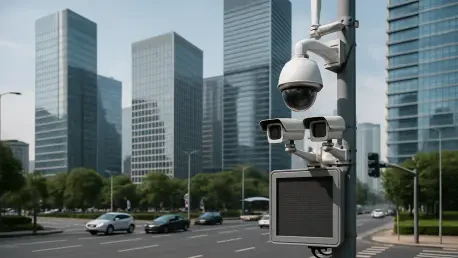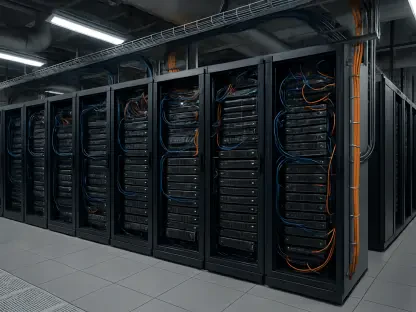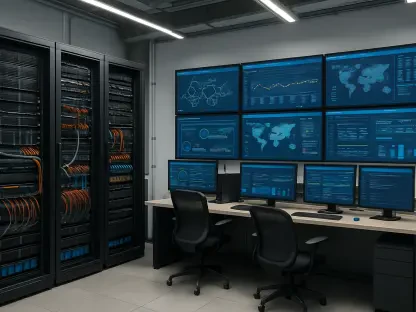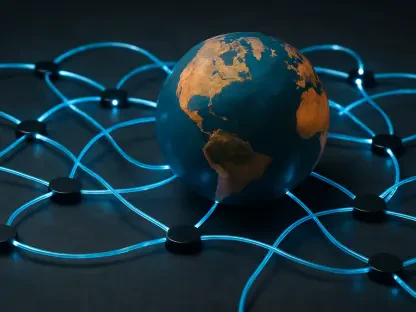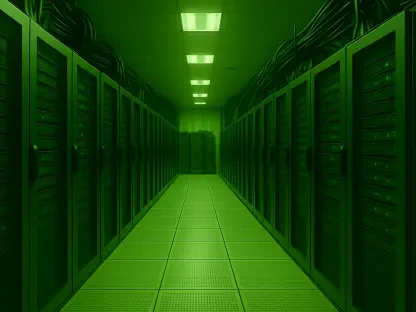As urban landscapes evolve into interconnected smart cities with sprawling networks of devices and systems, the specter of cybersecurity threats looms larger than ever, posing significant risks to public safety and infrastructure integrity. Enter Mooke, a pioneering Korean startup led by CEO Kang Se-beom, which is reshaping the security paradigm with its cutting-edge zero-trust technology. This innovative approach tackles the persistent challenges of hacking vulnerabilities and operational inefficiencies that have long plagued public systems due to stringent network segregation policies. Far from merely providing a defensive shield, Mooke’s mission extends to empowering cities to harness digital connectivity for enhanced living standards while safeguarding critical data. By breaking away from conventional security models, the company offers a glimpse into a future where technology and safety coexist seamlessly, paving the way for smarter, more resilient urban environments.
Redefining Security with Zero-Trust Principles
The core of Mooke’s groundbreaking contribution to cybersecurity lies in its adoption of the zero-trust model, a framework that operates on the principle that no user or device can be inherently trusted, requiring continuous verification for access. This stands in stark contrast to traditional security approaches that often rely on fortified perimeters akin to medieval castles, which can crumble under sophisticated cyberattacks. Mooke’s technology employs secure tunneling, creating virtual pathways for data transmission that restrict access solely to authorized entities. This method not only prevents the lateral spread of breaches but also allows public systems to embrace internet connectivity without the constant threat of intrusion. By addressing the tension between operational convenience and robust protection, this approach offers a viable solution for municipalities and governments striving to modernize infrastructure while maintaining stringent safety standards.
Beyond the technical intricacies, the zero-trust model signifies a cultural shift in how security is perceived within public sectors, moving from a reactive stance to a proactive, dynamic defense mechanism. Mooke’s implementation ensures that even if a breach occurs, the damage is contained, as unauthorized access is systematically blocked at every turn. This is particularly vital in an era where smart city components like traffic systems and public utilities are increasingly interconnected, creating multiple entry points for potential threats. The significance of this technology extends to compliance with existing network segregation regulations, often a hurdle for digital adoption in government settings. By aligning safety with usability, Mooke is helping to dismantle long-standing barriers, enabling public institutions to leverage digital tools for better service delivery without compromising the integrity of sensitive information or critical operations.
Impacting Urban Infrastructure with Practical Solutions
Mooke’s zero-trust technology is already leaving a transformative mark on smart city infrastructure, addressing real-world challenges with measurable outcomes. Public Wi-Fi networks, smart bus shelters, and intelligent streetlights are just a few areas where this innovation shines, allowing remote inspection and maintenance that significantly reduce operational costs. Previously, maintenance teams might have needed to travel long distances for manual system checks due to restricted internet access in public systems—a process both time-consuming and resource-intensive. Now, with secure connectivity, such tasks can be managed remotely, slashing expenses and improving response times. This shift not only enhances efficiency but also builds public confidence in digital services often viewed with skepticism due to security concerns, redefining how citizens interact with urban technology.
The broader implications of these advancements are evident in the enhanced quality of urban services that smart cities can now offer. For instance, public Wi-Fi, once a hotspot for potential data theft, has evolved into a trusted amenity under Mooke’s protective framework, ensuring safe access for residents and visitors alike. Similarly, the ability to monitor and maintain smart infrastructure remotely means quicker resolution of issues like malfunctioning streetlights or transit delays, directly impacting daily life in positive ways. These practical applications underscore a crucial point: cybersecurity is not merely about defense but about enabling progress. By integrating zero-trust principles, Mooke facilitates a digital transformation in public spaces that prioritizes both safety and functionality, setting a benchmark for how cities can balance innovation with the imperative of protecting critical systems from ever-evolving cyber threats.
Envisioning a Data-Driven Urban Future
Looking to the horizon, Mooke’s ambitions stretch far beyond the realm of cybersecurity, aiming to redefine itself as a cloud data analytics SaaS provider in the coming years. CEO Kang Se-beom envisions secure data as a powerful tool to address pressing urban challenges such as traffic congestion, energy inefficiencies, and environmental degradation. By ensuring that data is protected through zero-trust mechanisms, the company plans to unlock its potential for actionable insights, enabling city planners to make informed decisions that enhance residents’ quality of life. This strategic pivot reflects a growing recognition in the tech industry that data, when safeguarded, can drive systemic improvements, positioning Mooke as a frontrunner in the intersection of security and urban innovation over the next few years, with a roadmap extending to global expansion by 2028.
This forward-thinking vision also ties into a larger trend where secure data becomes the cornerstone of smart city evolution, fueling advancements that are both sustainable and citizen-centric. Mooke’s approach ensures that as cities collect vast amounts of information from IoT devices and connected systems, the risk of misuse or breaches is minimized, fostering trust in digital ecosystems. The potential applications are vast—ranging from optimizing public transportation routes to reducing energy consumption through smart grids. By laying the groundwork now with robust security frameworks, Mooke is preparing to lead in a future where data analytics can solve complex urban problems without exposing systems to vulnerabilities. This dual focus on protection and progress highlights the company’s role not just as a technology provider, but as a catalyst for smarter, safer urban living environments worldwide.
Building Trust Through Social Responsibility
Mooke’s influence extends beyond technical innovation, embracing a commitment to social responsibility as a certified social venture dedicated to community impact. By focusing on restoring public trust in digital services, the company addresses a critical societal need in an age where skepticism about data privacy abounds. Initiatives such as supporting youth employment and engaging in ESG (Environmental, Social, and Governance) practices demonstrate a mission that aligns business growth with social good. Despite its compact team of four developers, a marketing director, and an external sales partner, Mooke has shown remarkable agility, securing patents and contributing to international projects, which underscores its potential to influence the smart city landscape on a broader scale while prioritizing ethical considerations.
Reflecting on its journey, Mooke’s efforts to foster community development through talent nurturing and public engagement have set a precedent for how startups can operate with purpose. This dedication to social impact complements its technological advancements, creating a holistic approach that resonates with both government partners and citizens. As the company navigated the complexities of scaling from local government contracts to international markets, its focus remained on ensuring that digital progress benefits society at large. The achievements of this small but determined team in blending innovation with accountability serve as a reminder that technology’s true value lies in its ability to uplift communities. Looking back, Mooke’s balanced pursuit of security, data potential, and social responsibility carved a unique path, inspiring a new standard for how urban technology firms could contribute meaningfully to global challenges.
